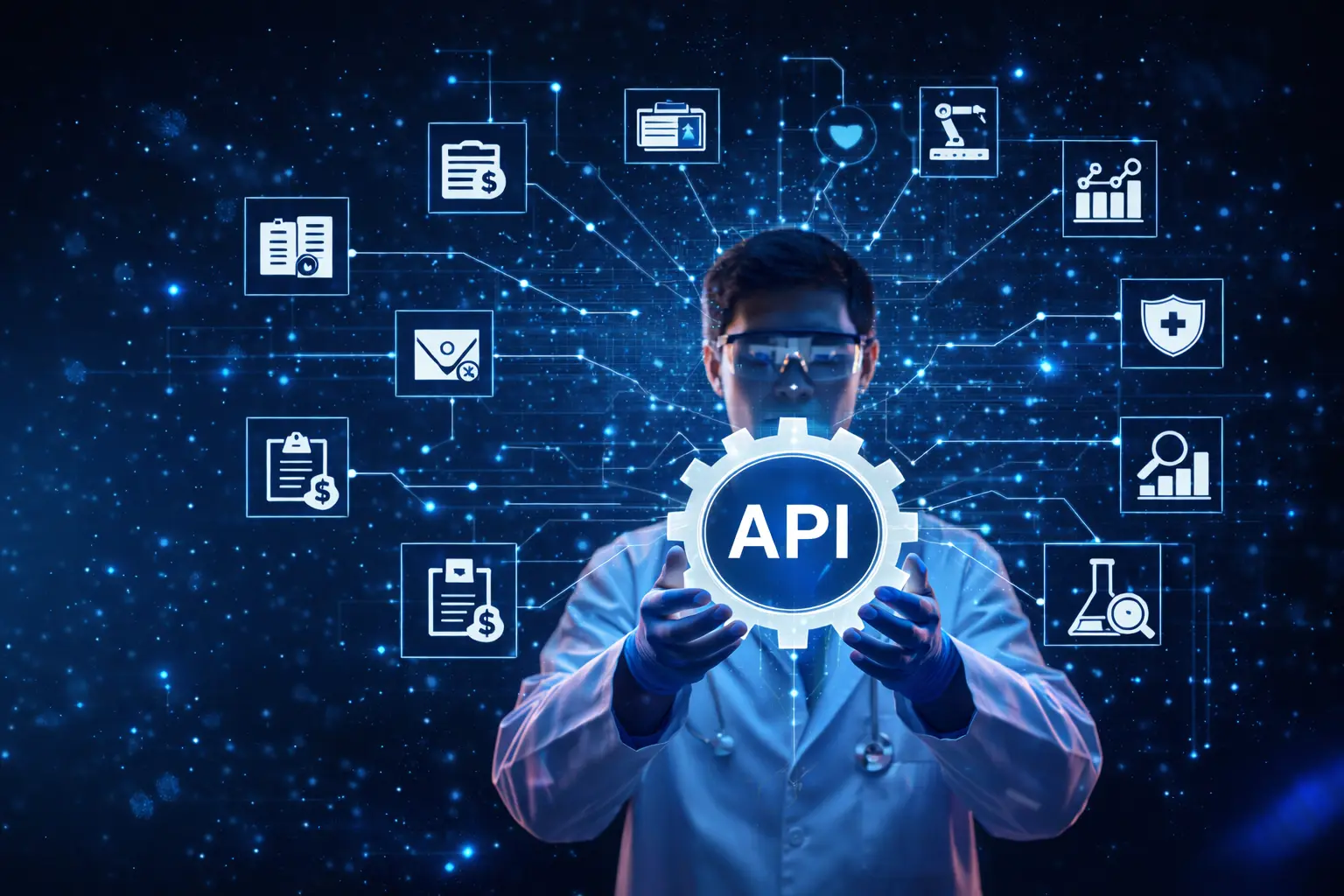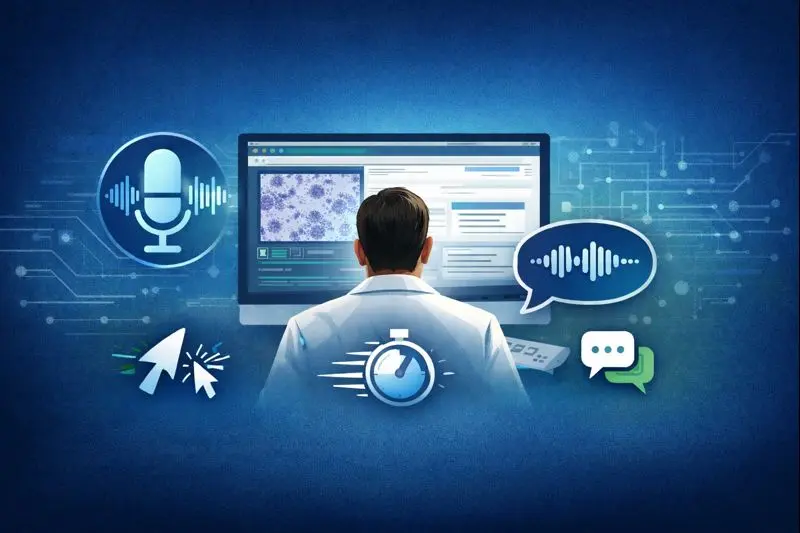Blog
LigoLab’s Enterprise Tier: Advanced Flexibility, Control, and Scalability for Wide-Ranging and Complex Regional and National Laboratories
July 17, 2025
In this fourth blog post, which explains LigoLab’s new tiered pricing model for its laboratory information system software, we focus on the Enterprise Tier. But first, in case you’ve missed the previous blog posts, links to all three of them are included here:
- Essential Tier: A reliable laboratory information system solution designed to meet the basic needs of small laboratories specializing in pathology, molecular, and reference lab testing.
- Professional Tier: Includes modules and features from the Essential Tier plus more sophisticated LIS software solutions for laboratory workflow management, interoperability, and operational informatics.
- Advanced Tier: A formidable lab information system solution that leaves other LIS systems in its wake by offering top-level efficiency, customization, automation, and operational intelligence.
As documented in our three previous posts about this new tiered pricing LIS model, a one-size-fits-all mentality continues to dominate the laboratory industry.
Unfortunately, most laboratory information system vendors aren’t interested in learning about a medical lab’s unique requirements and customizing the LIS system software to optimize their operations. They’re interested in selling the medical LIS software system to the customer. They would prefer not to hear from them again after this, as they view this type of interaction as a burden and an additional cost.
Discover More: LigoLab Helps Lab Directors Get a Healthy Return on Their Laboratory Information System (LIS) Investment
This is where LigoLab sets itself apart from other laboratory information system companies. Instead of selling an inflexible and legacy LIS system with hidden or add-on costs for adding seats or modules, LigoLab establishes long-term laboratory partnerships with its customers by aligning with them on their budget and growth goals.
LigoLab believes the independent clinical and pathology laboratories it serves deserve better and more adaptable laboratory information. That’s why it created a four-tiered pricing model, with each LIS lab platform tier representing a perfect fit for their distinct requirements, workflows, and stages of business development.
Discover More: LigoLab Informatics Platform: Uniquely Designed to Deliver Maximum Value

An All-Powerful Laboratory Information System Software Platform Designed for Regional and National Laboratories
Now let’s concentrate on LigoLab’s Enterprise Tier and explore why this LIS pathology solution is an ideal fit for regional and national clinical laboratories that require total integration across multiple departments or sites, highly customizable workflows, and broad scalability.
In addition to incorporating all of the modules available within the Essential Tier, the Professional Tier, and the Advanced Tier, the Enterprise Tier also includes the following laboratory information system functions:
Auto Case Assignment
The Auto Case Assignment module enhances the LigoLab platform with advanced functionality that streamlines case distribution to pathologists. It ensures assignments are fair, balanced, and efficient while factoring in several key criteria, including:
- Licensure: The module ensures that cases are assigned only to pathologists with the appropriate license to handle those specific cases. It verifies the legal requirements for case handling and eliminates compliance risk.
- Specialization: It respects the pathologist's specialty and experience, ensuring cases related to their specific area of expertise are received. This leads to more accurate and efficient diagnostics.
- Customer Preference: The module can be configured to understand and prioritize clients' preferences for pathologists when assigning cases, enhancing client satisfaction and trust. This added layer of customization ensures that each case is handled by the most qualified pathologist (and the pathologist preferred by the customer). This emphasis on client-pathologist relationships adds a personal touch to the laboratory's services while enhancing customer satisfaction.
- Case Weight: The module considers the complexity of the case (case weight) to distribute the workload evenly and maintain a balanced workload among all pathologists.
- Case Loads: The module tracks the number of cases each pathologist has handled to avoid undue stress and ensure each pathologist maintains a manageable workload.
The Auto Case Assignment module can seamlessly integrate with scheduling systems like QGenda, enabling the LIS software to factor in each pathologist’s availability, schedule, and location. This results in smarter, more efficient case distribution and optimal resource utilization.
Discover More: The Role of Anatomic Pathology Software in Optimizing Laboratory Workflow Management

Data Warehouse
The Data Warehouse module is a central repository for all laboratory data across multiple systems. It’s designed to ingest, normalize, and store data from various sources, allowing for a comprehensive and centralized view of all the information flowing through the laboratory.
The module also facilitates comprehensive reporting and analytics by integrating data from various sources. This integration presents a holistic overview of all operations, providing insight that can’t be obtained when data sets are isolated.
The Data Warehouse module is built on a discrete data model, meaning every data piece is stored individually. This approach allows for high flexibility and granularity in reporting and data analysis. Users can drill down into the specifics of each data point to gain detailed insights and in-depth analysis.
The module also offers a comprehensive data source for all operational, administrative, financial, and clinical needs. Users can store historical data from previous laboratory software systems, facilitating trend analysis and strategic planning that helps track a laboratory's performance over time and helps lab operators make informed future decisions.
Automation Engine
The Automation Engine module is a sophisticated tool that elevates the laboratory information system’s automation capabilities to an even higher level. It extends the functionality of the Rule Engine by allowing laboratory operators to create complex decision support trees by chaining existing rules. This feature is designed to streamline complex processes by reducing manual intervention.
The Automation Engine enables users to link multiple rules together in a sequence or hierarchy. This capability prompts the module to consider a series of conditions and perform a sequence of actions, automating a multi-step decision-making process.
For instance, a laboratory could create a decision support tree that automatically assigns specific tests based on initial results, patient demographics, or other criteria. It could also establish an automated workflow that handles the laboratory billing process (lab revenue cycle management) based on payer rules and patient data, from claim submission to remittance processing.
The Automation Engine’s flexibility can be customized to automate virtually any pathology lab management process, such as quality control, lab billing, or another area of laboratory operations.
By reducing the need for manual intervention, the Automation Engine minimizes the potential for human error and ensures that key decisions are made consistently and accurately during processing. Doing so enhances efficiency, reduces turnaround times, and improves patient care.
Discover More: Enhancing Laboratory Workflow Efficiency with Advanced Billing Automation: A Look at LigoLab's LIS & RCM Solution
Patient Reporting Portal
The Patient Reporting Portal is a pathology lab software application designed to help laboratories comply with patients’ legal rights to access their healthcare information, including laboratory test reports.
Under HIPAA and CLIA regulations, patients have the legal right to access their health information directly from laboratories.
LigoLab’s Patient Portal supports this by providing a secure, user-friendly platform where patients can view, download, or print their lab test results. After verifying identity to protect privacy, patients gain access to clearly formatted reports that highlight key findings for better understanding.
This portal enhances the patient experience by providing direct access to lab results and reducing the lab’s administrative burden. By automating the delivery of reports to patients, the portal reduces the time and resources required to respond to individual patient requests.
The Patient Reporting Portal is built with scalability in mind. It’s designed to handle many simultaneous requests, ensuring all patients can access their reports quickly and smoothly.
By implementing the portal, labs can enhance patient satisfaction, streamline administrative processes, and ensure compliance with laws regarding patient access to personal health information.
In addition to the Patient Portal, LigoLab has developed a comprehensive direct-to-consumer lab testing platform called TestDirectly (TestDirectly.com).
The TestDirectly platform, which requires a separate license, offers services beyond simple consumer lab reports and test result retrieval. TestDirectly empowers patients to directly interact with laboratories, enhancing the laboratory-patient relationship and promoting active and unified engagement in their healthcare journey.
With TestDirectly, patients can conveniently place direct-to-consumer lab testing orders with the laboratory. This includes ordering test kits, scheduling specimen draws at their preferred location and time, and receiving their reports digitally. The TestDirectly platform provides all this, ensuring patients enjoy a seamless, intuitive experience without the common barriers to testing and follow-up.
TestDirectly empowers laboratories to tap into the growing consumer-driven healthcare market where patients seek more control and accessibility over their healthcare management.
By providing direct services to consumers, direct-to-consumer labs can diversify their revenue streams, enhance patient satisfaction, and increase their market reach.
Discover More: Highlighting the Versatility of the TestDirectly Direct-to-Consumer Lab Testing Portal

Eligibility Checking & Insurance Discovery
LigoLab’s comprehensive medical LIS software solution includes Eligibility Checking and Insurance Discovery, two real-time features for batch-processing scenarios.
The Eligibility Checking feature allows laboratories to verify a patient's insurance coverage in real-time or in batch processing before any service is rendered. This helps prevent laboratory billing rejections and denials due to lack of coverage, expired policies, or incorrect policy details.
By obtaining this critical information upfront, labs can avoid unnecessary costs, improve collections, and enhance their laboratory revenue cycle management (lab RCM) performance.
The Insurance Discovery feature helps labs identify and verify active insurance coverage for self-pay or uninsured patients. This feature enables labs to discover previously unidentified insurance coverage and maximize their potential reimbursement by utilizing sophisticated data-matching algorithms that pore over a wide array of databases.
These two features are fully integrated within the LigoLab platform, enabling labs to automate and streamline lab billing processes for greater accuracy and improved financial outcomes. By supporting both real-time and batch processing, they offer the flexibility to align with each lab’s specific workflow and operational needs.
Together with LigoLab’s comprehensive lab RCM module—which includes additional integrations like upfront address and demographic validations, robust workflow queues, a detailed audit trail, automation tools, and flexible statement delivery—these features serve as powerful assets for strengthening a lab’s financial performance.
The result is a streamlined, dependable, and scalable lab billing workflow—one that significantly reduces claim denials, boosts first-pass payment rates, and minimizes the need for manual administrative work.
Like the TestDirectly direct-to-consumer lab testing platform mentioned earlier, the lab RCM module requires a separate software license. Thanks to end-to-end data integrity, when the lab RCM module is combined with LigoLab’s LIS system module, lab operators can effectively stop revenue leakage.
This combination results from the two modules instantaneously sharing the same united database and pathology lab reporting software infrastructure. In this scenario, all relevant information for a case is consolidated within a single data entity called the Billing Encounter. This consolidation includes order and specimen information, patient and payer demographics, coding, billing, and remittance processing data.
The Billing Encounter is the driving force behind the logic that supports the entire medical LIS & lab RCM lifecycle within the LigoLab platform.
Compare this with the data silos and fragmented information that typically comes from separate laboratory software systems for LIS medical and lab RCM workflow, and you can quickly see what a difference-maker it is to have a fully integrated LIS system & lab RCM module working together as part of one comprehensive and agile laboratory information system software platform.
Case Study: In-House vs. Outsourced Laboratory Billing – Navigating the Best Path Forward for Your Lab
Interface Engine
The Interface Engine module is both powerful and versatile. It’s a crucial bridge for establishing seamless interoperability with many external systems and facilitating bidirectional data flow between the LigoLab platform and Electronic Health Records (EHRs), government agencies, lab RCM management companies, and laboratory analyzers.
The Interface Engine can send and receive data in various standard healthcare formats, including HL7, CCD, CDA, FHIR, XML, JSON, and ASTM. It can efficiently handle multiple simultaneous interfaces, supporting more comprehensive and integrated laboratory workflow management across different systems. The interface Engine eliminates manual data entry, reduces errors, and improves efficiency and accuracy.
Beyond standard interface communication, LigoLab’s Interface Engine supports automated message validation, intelligent error handling, and customizable message transformation and routing based on defined criteria.
With extensive experience collaborating with EHR vendors and health IT providers, LigoLab ensures a smooth and efficient interface setup with minimal downtime or disruption. The result is a fully integrated, interoperable environment that enhances data exchange, streamlines lab operations, and supports higher-quality patient care.
Another distinctive advantage is the Interface Engine’s ability to empower laboratory teams to create interfaces. With an intuitive interface and user-friendly tools, teams can design and implement data integration workflows tailored to their needs. This do-it-yourself capability promotes greater control over the data exchange process, allows for rapid adjustment as requirements evolve, and accelerates the deployment of new interfaces.
This approach dramatically reduces reliance on external IT support or specialized interface developers, two big pluses. Instead, the lab team can swiftly respond to changes, ensuring seamless continuation of data flow.
The Interface Engine module enables labs to actively participate in their data management, leading to more efficient and productive operations.
Discover More: LigoLab Delivers the Interoperability Needed to Transform Medical Laboratories into Thriving Businesses
Auto Coding
The Auto Coding module is a welcome feature designed to streamline and automate the CPT and ICD coding processes. This innovative module increases medical lab billing and coding efficiency, accuracy, and compliance.
With LigoLab’s Auto Coding feature, the appropriate CPT and ICD codes are intelligently assigned based on the specific procedures and diagnoses identified during laboratory testing and analysis. This advanced functionality supports the automatic assignment of codes, eliminating the need for manual input and significantly reducing the chance of coding errors.
The module adheres to the latest coding standards and guidelines, ensuring compliance with healthcare regulations and capture of all the revenue the lab is entitled to.
Traditional rule-based algorithms power the module while enabling innovative Machine Learning (ML) and Natural Language Processing (NLP) technologies for enhanced capabilities.
These ML and NLP techniques enhance the module to analyze unstructured data such as qualitative results, enabling it to understand context, identify critical elements, and automatically assign the appropriate CPT and ICD codes. Additionally, as the LIS software continuously learns from the data it processes, it becomes more precise and efficient over time, enhancing its ability to accurately auto-assign codes.
With the integration of ML and NLP technology, the Auto Coding module can handle a broader range of data and more complex coding scenarios, thereby reducing the risk of coding errors and missed lab billing opportunities. It also significantly improves the speed and efficiency of the overall coding process.
This advanced technology makes the Auto Coding module a robust, flexible tool that adapts to evolving laboratory needs. With it, labs can automate critical lab workflow components to maximize productivity, minimize errors, and optimize revenue capture.
Discover More: The Power of Integration: Unleashing the Potential of LigoLab's LIS & Lab RCM System
Single Sign On (SSO)
LigoLab's Single Sign-On (SSO) solution provides a streamlined and secure user experience by allowing users to authenticate using just one login credential. This significantly simplifies the login process while maintaining a high level of security.
The SSO solution integrates seamlessly with an organization's local LDAP services, providing a central point of authentication for IT administrators to manage and monitor user accounts. This reduces the risk of unauthorized access and improves an organization's overall security posture.
In addition to local LDAP integration, LigoLab's SSO solution also supports social logins. Users can authenticate using their existing credentials from popular social media platforms such as Google, Facebook, and LinkedIn, allowing them to choose the login method that suits their needs and preferences.
The SSO solution minimizes the risk of password-related security breaches and enhances the overall user experience by reducing the number of passwords users need to remember and manage.
Integrating social logins and local LDAP services allows organizations to implement a secure and user-friendly authentication solution that aligns with their specific operational requirements and user preferences.

Dedicated Account Manager
For Enterprise Tier customers, LigoLab offers the advantage of a Dedicated Account Manager who serves as the single point of contact for a lab, ensuring a smooth, seamless, and personalized experience.
The Dedicated Account Manager is responsible for understanding the customer's unique needs, objectives, and workflows and is instrumental in implementing, adjusting, and optimizing LigoLab's features and enhancements.
This enhanced service includes access to the Continuous Improvement department, a specialized team that regularly reviews a client's clinical lab workflow. This department’s goal is to identify areas of improvement, suggest best practices, and ensure customers are leveraging the full potential of the LigoLab platform.
The Continuous Improvement department also helps implement the latest LigoLab features, keeping customers at the forefront of all technological advances. This ongoing and proactive engagement means that LigoLab doesn't just deliver a product but a partnership committed to continual enhancement.
This combination of a Dedicated Account Manager and access to the Continuous Improvement team means Enterprise Tier customers get an advanced laboratory information system software solution and a strategic partnership that drives efficiency, improves performance, and ensures they remain at the cutting edge of laboratory management technology.
Discover More: Navigating the Future of Pathology: The LigoLab Advantage
LigoLab: Changing the Way Laboratory Information System Companies Do Business
When we say “We know and want what’s best for our laboratory partners”, we mean it.
That’s why we’ve developed a comprehensive and agile lab information system platform with advanced medical LIS software technology and added a tiered pricing model that allows labs to graduate to new functionality, complexity, and scalability as they mature.
LigoLab does what homegrown and legacy laboratory information systems can’t. Our LIS software solutions evolve as a laboratory grows and becomes more complex, providing more features and support as needed while guiding our lab partners on their journey from start-up to enterprise organizations.
Ready to experience LigoLab’s highest level of modules, features, and services?
Contact us today to learn more about the Enterprise Tier.






